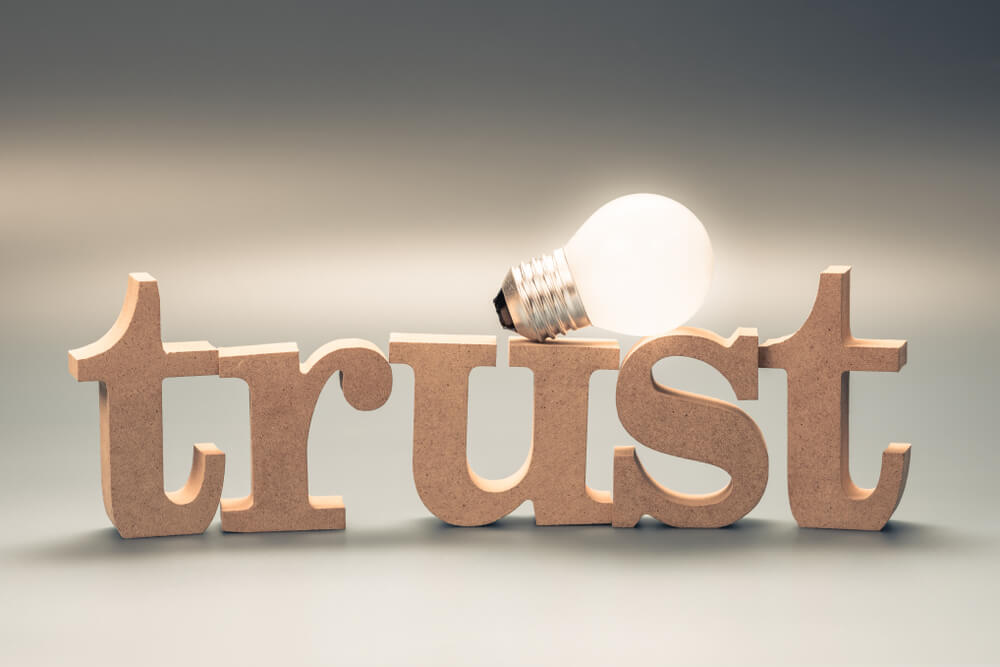
Selling high-priced products demands insight into human psychology and decision-making. In premium markets, businesses must surpass traditional sales methods. This examination of high ticket sales psychology explores factors influencing buyer behavior, including trust-building, scarcity tactics, compelling value propositions, and effective storytelling. Understanding these principles reveals strategies to enhance sales approaches and succeed with premium offerings.
Understanding High Ticket Sales
High ticket sales refer to the process of selling premium products or high-end services that come with a substantial price tag. These items typically cater to the luxury market and require a more sophisticated approach to marketing and sales. Understanding high ticket sales is crucial for businesses looking to tap into lucrative markets and maximize their revenue potential.
At its core, high ticket sales involve offering products or services that provide exceptional value to customers, justifying their higher price point. This approach often relies on value-based selling, where the focus is on the unique benefits and long-term advantages of the offering rather than just its features or cost.
The importance of high ticket sales lies in several key areas:
1. Increased profit margins: Selling premium products or services often results in higher profit margins per sale, allowing businesses to generate substantial revenue with fewer transactions.
2. Targeted customer base: High ticket items attract a specific demographic of customers who are willing to invest in quality and exclusivity, leading to more focused marketing efforts.
3. Brand prestige: Successfully selling high-end products or services can elevate a company’s brand image and position it as a leader in the luxury market.
4. Customer relationships: The process of selling high ticket items often involves building strong, long-lasting relationships with clients, leading to increased customer loyalty and potential repeat business.
5. Competitive advantage: Mastering high ticket sales can set a business apart from competitors who may focus solely on lower-priced offerings.
By understanding and implementing effective high ticket sales strategies, businesses can unlock new opportunities for growth and establish themselves as key players in the premium product and luxury service markets.
The Psychological Principles Behind High Ticket Sales
Understanding the psychological principles behind high ticket sales is crucial for any marketer or salesperson looking to excel in this arena. Consumer psychology plays a significant role in the decision-making process, particularly when it comes to expensive purchases. Several cognitive biases influence how potential buyers perceive and evaluate high-priced offerings.
One key factor is the concept of perceived value. Consumers often associate higher prices with superior quality, leading to what’s known as the price-quality heuristic. This bias can be leveraged by emphasizing the unique features and benefits of a premium product or service.
Emotional triggers also play a vital role in high ticket sales. Luxury items often appeal to desires for status, exclusivity, or self-actualization. By tapping into these emotional needs, salespeople can create a stronger connection between the product and the consumer’s aspirations.
The scarcity principle is another powerful tool in high ticket sales. Limited availability or time-sensitive offers can increase the perceived value and urgency of a purchase, prompting quicker decision-making.
Additionally, the anchoring effect can be utilized by presenting a higher-priced option first, making subsequent offerings seem more reasonable by comparison. This technique can help guide consumers towards a desired price point.
By understanding and applying these psychological principles, marketers and salespeople can more effectively navigate the complexities of high ticket sales, creating compelling offers that resonate with their target audience’s cognitive and emotional drivers.
Building Trust and Credibility in High Ticket Sales

Building trust and credibility is paramount in high ticket sales, where potential customers are considering significant investments. One of the most effective ways to establish this trust is through social proof. By showcasing testimonials from satisfied clients and presenting detailed case studies, you demonstrate the real-world value of your product or service.
Authority positioning is another crucial element in building credibility. Establish yourself or your brand as an industry expert through thought leadership content, speaking engagements, and media appearances. This positions you as a trusted advisor rather than just another salesperson.
Leveraging your brand reputation can significantly impact high ticket sales. Consistently deliver exceptional quality and customer service to build a positive reputation over time. Encourage satisfied customers to leave reviews on reputable platforms, as these serve as powerful endorsements for potential buyers.
Remember, in high ticket sales, customers are not just buying a product or service – they’re investing in a relationship with your brand. By focusing on building trust and credibility through these strategies, you create a solid foundation for successful high ticket sales and long-term customer relationships.
The Role of Scarcity and Exclusivity in Premium Offerings
Scarcity and exclusivity play crucial roles in shaping the perception and desirability of premium offerings. By leveraging limited availability, brands create a sense of urgency and heighten the perceived value of their products or services. This strategy taps into the psychological principle of fear of missing out (FOMO), compelling consumers to act quickly to secure their purchase.
Exclusive access is another powerful tool in premium marketing. By offering select customers early or unique access to products, services, or experiences, companies foster a sense of belonging and prestige among their clientele. This approach not only drives sales but also builds brand loyalty and creates a community of devoted customers.
Urgency tactics, such as time-limited offers or countdown timers, further amplify the effectiveness of scarcity marketing. These techniques create a sense of immediacy, encouraging potential buyers to make swift decisions and reducing the likelihood of purchase abandonment.
Prestige pricing is often employed in conjunction with scarcity and exclusivity strategies. By setting prices at a premium level, brands signal the superior quality and uniqueness of their offerings. This pricing approach attracts status-conscious consumers who associate higher prices with greater value and social standing.
When implemented thoughtfully, these strategies can significantly enhance the appeal and profitability of premium offerings, creating a powerful allure that sets them apart in the marketplace.
Crafting Compelling Value Propositions for High Ticket Items
Crafting compelling value propositions for high-ticket items requires a strategic approach that goes beyond simply listing features. To truly capture the attention of potential buyers, it’s essential to focus on the unique selling proposition (USP) that sets your product apart from competitors. This involves highlighting the specific benefits that address your target audience’s pain points and demonstrating how your offering provides superior solutions.
When developing your value proposition, emphasize the long-term value and return on investment (ROI) that customers can expect. High-ticket items often represent significant investments, so it’s crucial to illustrate how the product will continue to deliver value over time. This can include factors such as increased productivity, cost savings, or enhanced performance.
A problem-solving approach is particularly effective for high-ticket items. Identify the key challenges your target audience faces and clearly articulate how your product addresses these issues. By framing your value proposition in terms of solutions, you create a compelling narrative that resonates with potential buyers.
Remember to focus on benefits rather than features. While technical specifications may be important, it’s the tangible outcomes and improvements that truly drive purchasing decisions. Translate features into meaningful benefits that directly impact the customer’s business or life.
By crafting a value proposition that combines a strong USP, clear benefits, ROI focus, and a problem-solving approach, you’ll be well-positioned to effectively communicate the worth of your high-ticket item to potential buyers.
Overcoming Objections in High Ticket Sales Conversations
Overcoming objections is a crucial skill in high-ticket sales conversations. To successfully navigate these challenges, sales professionals must master several key techniques. Active listening is paramount, allowing you to fully understand the prospect’s concerns and respond appropriately. By carefully attending to their words and body language, you can identify underlying issues that may not be explicitly stated.
Reframing techniques are invaluable when addressing common objections. This involves presenting the objection from a different perspective, helping the prospect see the situation in a new light. For example, if a client objects to the price, reframe the conversation to focus on the long-term value and return on investment.
Addressing concerns head-on is essential in building trust. Don’t shy away from difficult topics; instead, provide clear, honest answers that demonstrate your expertise and commitment to the client’s success. This transparency can significantly boost your credibility and rapport.
Implementing risk reversal strategies can also be highly effective in overcoming objections. Offer guarantees, trial periods, or phased implementation plans to alleviate the prospect’s perceived risk. By shouldering some of the risk yourself, you demonstrate confidence in your product or service and make it easier for the client to commit.
Remember, objections are often a sign of interest rather than rejection. By mastering these techniques, you can transform objections into opportunities to showcase your value proposition and close high-ticket sales more effectively.
The Art of Storytelling in High Ticket Sales
Storytelling is a powerful tool in high ticket sales, leveraging narrative persuasion to create an emotional connection with potential customers. By crafting compelling stories, salespeople can guide prospects through the customer journey, helping them envision the transformation that awaits them.
Effective brand storytelling goes beyond simply listing product features; it weaves a narrative that resonates with the audience’s desires and pain points. Transformation stories, in particular, are crucial in high ticket sales. These narratives showcase how other customers have overcome challenges and achieved success with the product or service, making the benefits tangible and relatable.
By incorporating storytelling techniques, sales professionals can create a memorable experience that sets their offering apart from competitors. This approach not only enhances the perceived value of the product but also builds trust and credibility, two essential elements in closing high ticket sales.
To master the art of storytelling in sales, focus on developing authentic narratives that align with your brand values and speak directly to your target audience’s aspirations. Remember, a well-told story can be the difference between a prospect and a loyal customer in the high ticket sales arena.
Leveraging Neuroscience in High Ticket Sales Strategies
Leveraging neuroscience in high ticket sales strategies can significantly boost conversion rates and customer satisfaction. Neuromarketing, the application of brain science to marketing, offers valuable insights into consumer behavior and decision-making processes.
One key aspect of neuromarketing is understanding brain chemistry, particularly the role of dopamine. By incorporating dopamine triggers into sales pitches, such as creating anticipation or offering unexpected rewards, salespeople can enhance the perceived value of their high-ticket items.
Loss aversion, a psychological principle stating that people prefer avoiding losses to acquiring equivalent gains, can be utilized in sales strategies. Emphasizing what customers might miss out on by not purchasing can be more effective than focusing solely on benefits.
The anchoring effect, where individuals rely heavily on the first piece of information offered, is another powerful tool. By strategically presenting a higher-priced option first, salespeople can make subsequent offers seem more reasonable and attractive.
By integrating these neuroscience-based techniques into high ticket sales strategies, businesses can create more compelling and persuasive marketing campaigns, ultimately leading to increased sales and customer loyalty.
The Impact of Pricing Psychology on High Ticket Sales
Price psychology plays a crucial role in high ticket sales, influencing consumer decision-making and perceived value. One effective technique is price anchoring, where a higher-priced option is presented first, making subsequent offerings appear more reasonable. The decoy effect, another powerful strategy, involves introducing a less attractive option to make the target product seem more appealing.
Price framing is essential in high ticket sales, as it shapes how customers perceive the cost. For instance, breaking down a large sum into smaller, more manageable payments can make expensive items feel more attainable. Bundling strategies can also be employed to increase perceived value, combining multiple products or services at a seemingly discounted rate.
Tiered pricing is particularly effective for high ticket items, offering different levels of service or features at varying price points. This approach caters to diverse customer needs and budgets while encouraging upsells to higher-priced options.
By understanding and implementing these pricing psychology techniques, businesses can optimize their high ticket sales strategies, boost conversions, and maximize revenue.




